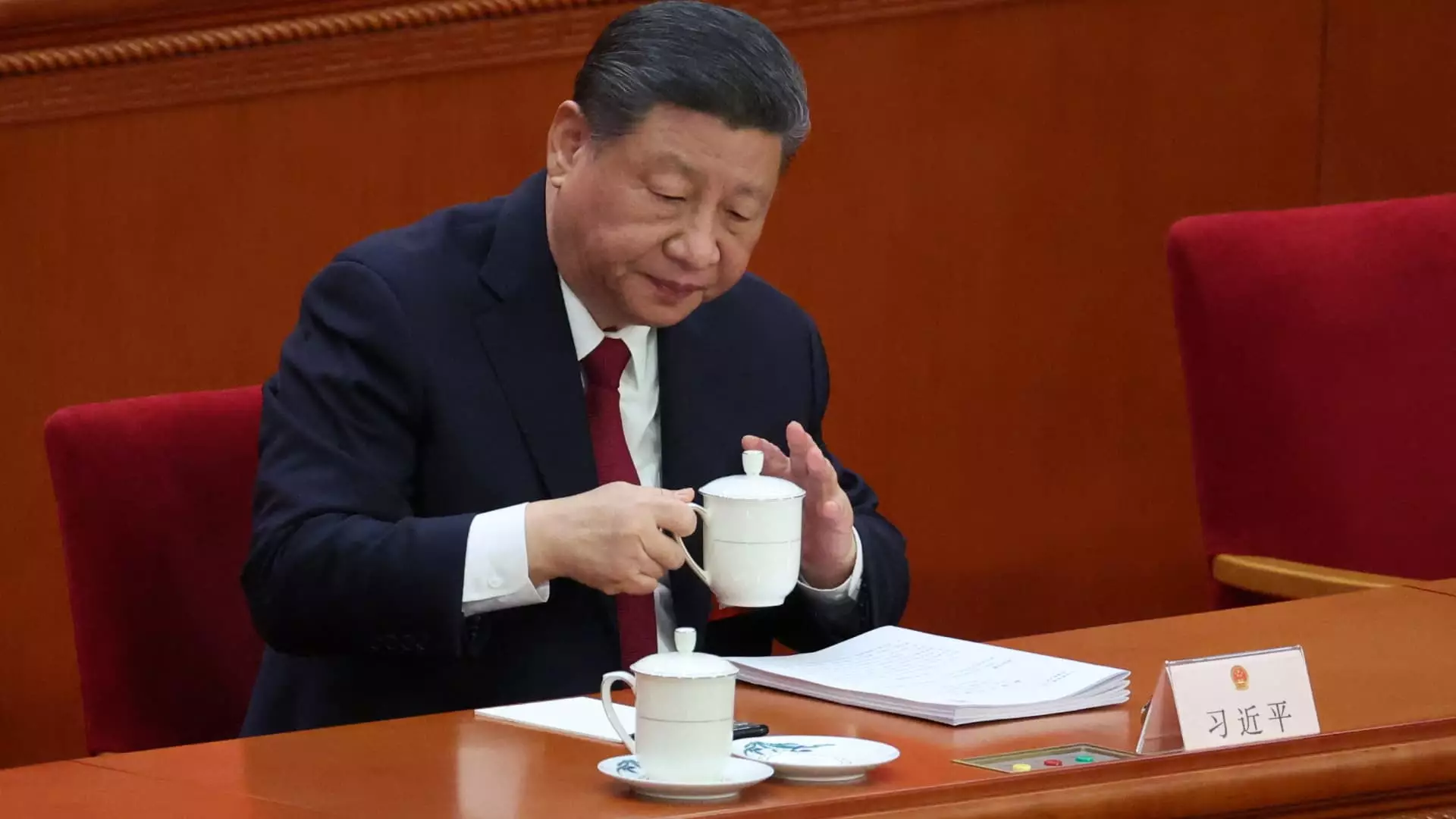In an age where economic landscapes are constantly shifting due to external pressures, China’s recent decisions showcase a blend of urgency and caution. President Xi Jinping chaired a crucial meeting with the Politburo, signaling the government’s intent to support struggling businesses faced with increasing external shocks. But what does this really mean? It’s a strategic move that reflects the severity of the situation and highlights the necessity of adaptive economic strategies. The ongoing tensions with the United States—dramatically intensified by the imposition of over 100% tariffs—indicate that the global economic environment is no longer just a backdrop for national policy but a significant driver of it.
Economists around the world are taking note, as major Wall Street institutions have already downgraded their GDP forecasts for China, emphasizing a shifting economic reality that challenges the ambitious growth target of “around 5%” set earlier this year. This is not just a number on a growth chart; it’s a reflection of the challenges that everyday Chinese citizens will face, particularly those in the middle and lower-income brackets whom the government now aims to support more vigorously.
Financial Strategies Under Spotlight
At the core of this strategy lies the promise of financial support—a crucial lifeline that may buy businesses some time to adapt. The Politburo’s commitment to reducing interest rates and adjusting the reserve requirement ratio signifies a willingness to create financial breathing room in a tightening economy. However, this also raises questions about the long-term viability of such measures. Can simply pouring money into struggling businesses sustain growth if innovations stagnate and tariffs continue to bite?
Zong Liang of Bank of China expressed the need for tailored interventions—specific research into the needs of targeted businesses, which is a nuanced approach compared to broad-based stimulus measures. Yet, it’s unclear if these piecemeal attempts will be enough to shield the economy from ongoing turbulence. The problem is that while the government demonstrates flexibility, it is often slow to act decisively, leading to prolonged anxiety within markets.
Only in March did China increase its deficit target—indicative of a government forced to reveal its cards in face of mounting pressures. This signals a reality where the political maneuvering inside China is compelled by external pressures rather than purely domestic considerations.
Rethinking Economic Policies
Given the broad strokes of policy laid out by the Politburo, observers are urged to consider how these measures will interface with local governments and major businesses actively working to shift focus from exports to domestic consumption. It’s a significant pivot that carries implications for industries long reliant on international markets. The idea of bolstering domestic consumption by enhancing incomes for middle and lower-income groups forms an integral part of the blueprint to counterbalance external shocks.
Technological advancement is another bastion upon which China seems determined to lean, particularly in integrating artificial intelligence across economic sectors. This strategic pivot is commendable, yet the question remains: will it be enough to shield the economy from impending global economic strife? The incorporation of AI promises efficiency and potential growth but implementing such technologies nationally often comes with its own set of challenges, including workforce displacement and resistance to change from established industries.
Political Will or Economic Survival?
While the statements from the Politburo are reassuring on one front, they also evoke skepticism about the government’s capacity to act swiftly and effectively under pressure. The lingering uncertainty surrounding U.S.-China relations compounds this dilemma. As Zhiwei Zhang suggests, China is not rushing into massive stimulus—a strategy that could either signify careful stewardship or a procrastination that could exacerbate existing issues.
It’s critical at this juncture to interpret these policy outlines as a reflection not only of economic necessity but also of political will within the Communist Party. As the National People’s Congress prepares to discuss a new private sector law, one can only hope that this legislative effort leads to genuine improvements in the business environment. What remains undeniable is that the interplay between government responsiveness and external economic realities will be pivotal as China navigates these turbulent waters ahead. The stakes are high, and the margin for error is narrowing.

Leave a Reply